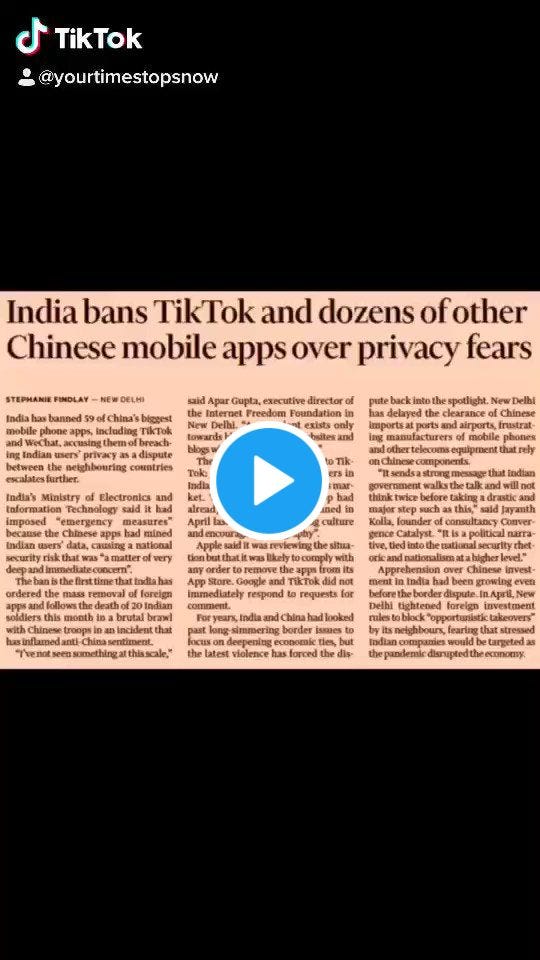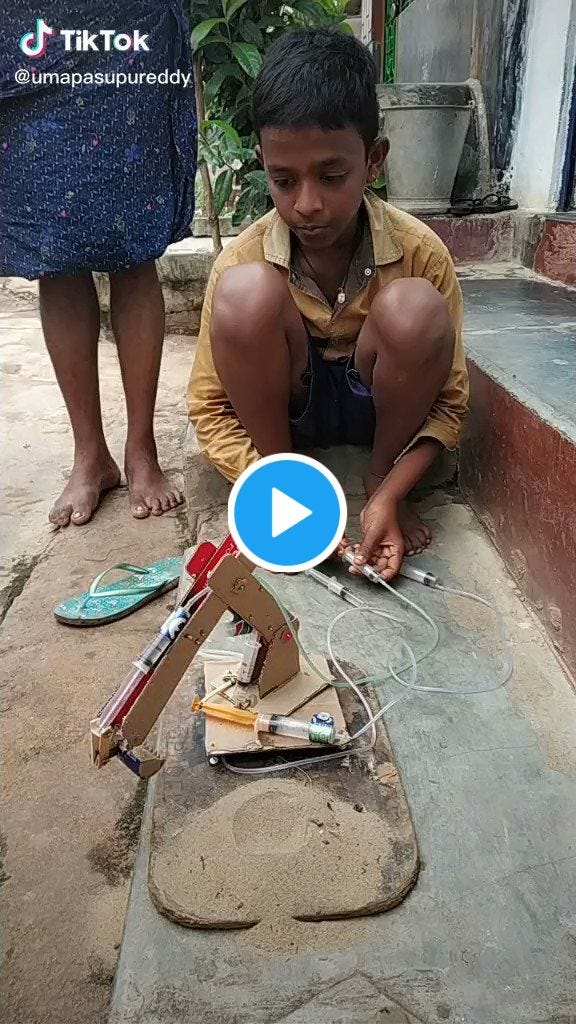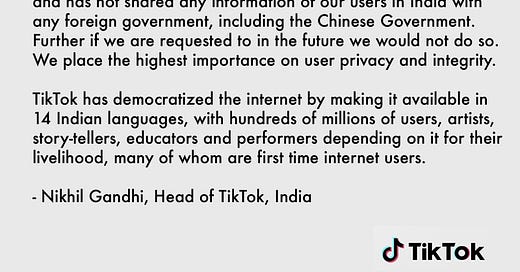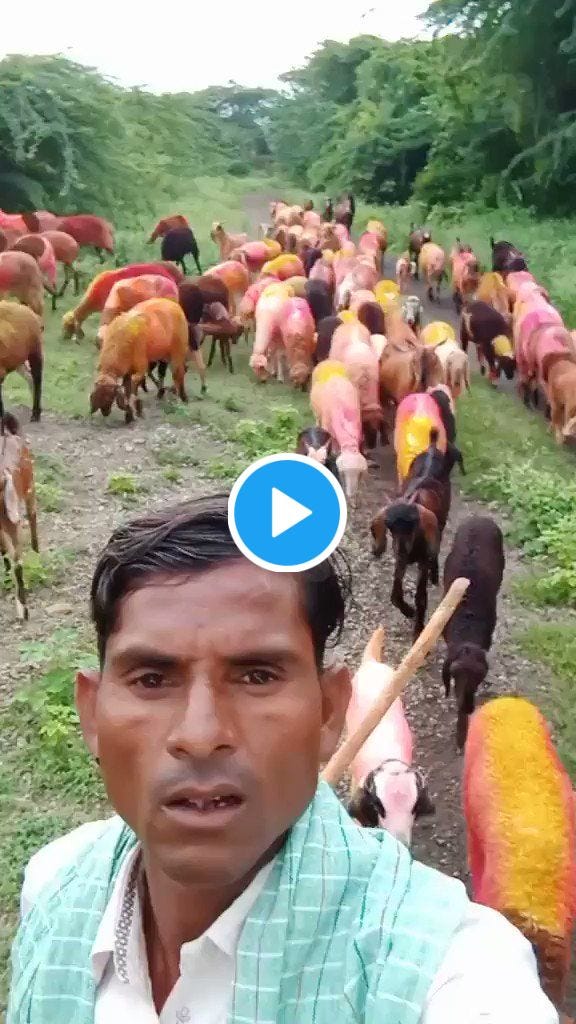#TikTok ban like nowhere else, in 55 tweets, 3 charts, 3 TikTok videos, and a sexy Telugu song
Has India killed three Chinese apps for every soldier who laid down his life in Ladakh?
How serious is the ‘ban’ on TikTok?
Very serious, if you hear the anchors of TV channels. It is a “digital strike” in the words of Sudhir Chaudhary and Amish Devgan. It is a “surgical strike” in the actions of Arnab Goswami who “spoke” in #TikTok.
The newspaper headlines announcing the ban are worthy of a TikTok video.


Arnab Goswami’s cameo reminded the Magsaysay Award-winning singer and activist T.M. Krishna of the Tamil thespian Shivaji Ganesan.


But the TikTok “update” shows that it is an “interim order” and that the company has been invited, along with the others, to “respond and submit clarifications.”
This “ban” is merely to fool Indians & temporarily create an impression that Modi has “done something”. Modi government will pull a Savarkar soon.”
IT minister Ravi Shankar Prasad cannot even mention China by name in his tweet announcing the ban, although his colleague Prakash Javdekar does.
What the analysts say
Section 69A of the IT Act doesn't allow for bans in the interest of data privacy, which is why the government has said the ban is in the interest of "sovereignty and integrity of India, defense of India, security of the State".

TikTok had been banned once before by the Madras High Court, last year.
Does the TikTok ban matter to China?
On the face of it, not. India imports more from China than it exports to China. And although China is India’s biggest trading partner, there are at least three countries to the East of India that import more from China: Japan, South Korea, Vietnam.

TikTok India revenues accounts for just 0.005% of China’s exports. So while symbolically large, the economic impact of the ban is not huge.
Does the ban matter to TikTok?
No and yes. TikTok’s parent company Byte Dance had global revenues of $17 billion in 2019 of which India accounted for a mere $5.8 million. In other words, just 0.03 per cent of its revenues.
TokTok clocked in profit of Rs 3.4 crore on revenues of Rs 43.7 crore in 2019. It was hoping to do revenues of Rs 100 crore by September. That plan hits a hurdle in the short term.

But in the networked economy, where “customer acquisition” is a mantra, it is not just about revenues or profits. It’s about acquiring subscribers and there TikTok is galloping ahead. It has 119 million active users in India.
Of its nearly 2 billion downloads per month, over 600 million come from India—and is growing. In 2019, Indians spent 5.5 billion hours on TikTok. Which company would want to spurn that?
Will the ban help desi players?
That is what tech insiders hope. Vijay Shekhar Sharma who runs PayTM (which is largely Chinese owned) says the ban on TikTok heralds “a step towards Atmanirbhar App ecosystem” where Indian entrepreneurs can step forward.

Kiran Mazumdar Shaw thinks the “government has provided a huge opportunity to tech start ups to leverage the App ban and create new and innovative Apps”.


What can China do in response
There isn’t a single Indian app that the Chinese use. Another matter, of course, there aren’t many American apps either.
“The Chinese economy has been built on denying market access. Ask Facebook, Twitter, Google,” says the business journalist Siddarth Zarabi.
The editor of the Chinese newspaper Global Times, Hu Xijin, says “even if Chinese people want to boycott Indian products, they can't really find many Indian goods”.

What are the question marks?
If the government of India had “raging concerns relating to data security” on #TikTok, why didn’t it tell the government of India?
Why hasn’t PayTM been subjected to similar action despite its dodgy record and its Chinese ownership? Why has PayTMMall been spared? Why is PUBG still around?
And what about the NaMo app which also “violates privacy of Indians by accessing 22 data points, surreptitiously changing the privacy settings and sending data to third party companies in US?”

But the big question remains: will this “ban” bring back the dead soldiers or retrieve the lost land? And did PayTM know that something like was in the air, which is why somebody changed its Wikipedia page and internal chat app?
What happens next
The ban on TikTok clearly makes it that much more difficult for Huawei in the 5G race. Already there are calls from journalists and analysts not to allow the Chinese company to set up infrastructure.
“There’s no way we can handover key of India’s economic future to the Chinese Communist Party,” says India Today’s Rahul Kanwal.

What’s the status now
The 59 Chinese apps are off App Store and Google Play, depending on ISP. TikTok’s ratings have plummetted. But there is some disbelief that the BJP-led NDA government took this action on an app which had given “small-town Indians a voice”.

Millions of man (and woman) hours have been freed up by the “ban”, but there is concern for those whose job description was “TikToker” who no longer have to produce content that slicker folk disdained.


“To dismiss all content on #TikTok as unsavoury, cringeworthy is the worst sort of snobbery,” says Shrabonti Bagchi.
“TikTok was the only social platform where we saw so many Indian queer kids living their best lives,” writes Neha Mathews.
But, lest we forget, all this started because of the killing of Indian soldiers literally at the hands of the Chinese, and China’s invasion of Indian soil.
India has now killed “three apps for every soldier”.
Just prior to China’s misadventure, the Chinese tech firms had made huge donations to the Prime Minister’s new fund, PM CARES, for COVID relief. TikTok which earned just Rs 3.4 crore paid Rs 10 crore. Should PMOIndia give it back?
And, finally
For #TikTokers deprived of their oxygen, there is always a hot Telugu rain song to pep up the mood. This one features the late Andhra Pradesh chief minister N.T. Rama Rao’s son Nandamuri Balakrishna, and Roja, the actress who is now a YSRCP MLA.
Screenshots: courtesy HowMuch.net, Statista, The Indian Express
Like what you see? Give us a shout. Don’t? Pray, why. Have a tip? Mail us.
Spread the word about The Net Paper, the world’s first social media juicepaper.









